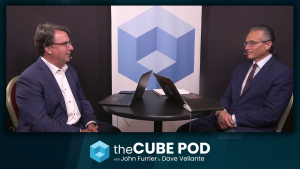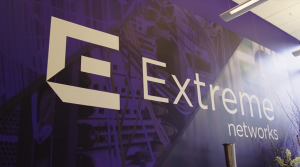158,616,176 Reasons Why Google Chrome OS Won’t Fail
![]() The party’s in full swing today on Google Chrome OS bashing – it seems that the blogosphere took cues from Steven Hodson yesterday, and multiple bloggers are attempting to advance the theory that Chrome OS is going to fail, and fail hard.
The party’s in full swing today on Google Chrome OS bashing – it seems that the blogosphere took cues from Steven Hodson yesterday, and multiple bloggers are attempting to advance the theory that Chrome OS is going to fail, and fail hard.
Randall Kennedy has a long screed on why Google Chrome OS will fail at Infoworld. Not just any kind of fail, but BIG TIME FAIL. Not to be outdone, Computerworld blogger Tony Bradley has Five Reasons the Google Chrome OS will Flop.
Of course, Patricio Robles at the Econsultancy blog had to go one better (well, seven better to be exact) with 12 reasons Chrome OS will fail.
There were several fail-whalers that didn’t list exactly how many reasons why it’s going to fail, but there were plenty: Taylor Buley from Forbes, Rob Diana at Regular Geek, and James A. Robertson at Industry Rants (he called Chrome stillborn, people).
I’ve read these posts, so you don’t have to. The reasons why Google Chrome OS is supposedly the biggest fail since Greedo shooting first are wide and varied, but having read all the reasons, I can tell you that everyone’s wrong. Unequivocally. All the arguments seem to be grasping at straws and they all rest on one simple and (as we’ve discussed many many times) mistaken assumption: This is a shot across the bow of Microsoft and Apple.
Sing It With Me Now: This Isn’t an OS War
![]() Ben Parr over at Mashable was the only pundit brave enough explicitly to trot out the largely discredited position that this was a play at Windows.
Ben Parr over at Mashable was the only pundit brave enough explicitly to trot out the largely discredited position that this was a play at Windows.
With the Google Revenue Equation in mind, it’s easier to understand Google’s primary motivations for creating an OS based entirely off the browser. The more time we spend browsing the web, the more money Google makes. It’s that simple. Thus, Google’s primary goal is to get us on the web more.
That’s exactly what Chrome OS does: its interface is 100% web, thus you are always browsing if you’re using Chrome OS. Every app is a web app. Plus, Chrome OS loads in seconds, getting you on the web faster.
In order for Google to accomplish its goal of getting us on the web more, it has to eliminate time sinks and anything that distracts someone from surfing the web on the computer. Thus, one of Google’s goals is to destroy the desktop.
It makes perfect sense, as long as you ignore the mountain of common sense logic that opposes that.
As we’ve said many times before, the netbook market isn’t the most attractive market for most OS vendors. Apple is allergic to cheap, and Microsoft isn’t fond of continually extending the end of life date for XP. Sure, Windows 7 runs great on horribly old machines, but not as good as it does on a well spec’d machine.
Microsoft isn’t interested in losing money supporting an old operating system, and Apple isn’t ready to become the Walmart of computers – so why, exactly, does it in any way make sense that they’re worried about what could still be a very popular operating system?
This Isn’t Rocket Science, It’s Simple Statistics
![]() As I’ve said many times, only 70% of the North American public has access to a personal computing device. That leaves 158,616,176 potential users for a Google product that could effectively be the cheapest computer ever mass produced.
As I’ve said many times, only 70% of the North American public has access to a personal computing device. That leaves 158,616,176 potential users for a Google product that could effectively be the cheapest computer ever mass produced.
Cheap. We’re talking theoretically $150, which incidentally is cheaper than what you can buy the famed “$100 Laptop” for.
You’re telling me that Google and their partner vendors don’t have an incentive to move 158,616,176 $150 machines? In case you’re really bad at math, that could theoretically be a $23 billion market. And that wouldn’t include one single Microsoft or Apple customer, nor does it touch the dollar figure that Google makes from selling ads against those people’s time online.
To the pundits, I now say: can we move on now and do some real analysis? Just curious.
A message from John Furrier, co-founder of SiliconANGLE:
Your vote of support is important to us and it helps us keep the content FREE.
One click below supports our mission to provide free, deep, and relevant content.
Join our community on YouTube
Join the community that includes more than 15,000 #CubeAlumni experts, including Amazon.com CEO Andy Jassy, Dell Technologies founder and CEO Michael Dell, Intel CEO Pat Gelsinger, and many more luminaries and experts.
THANK YOU









